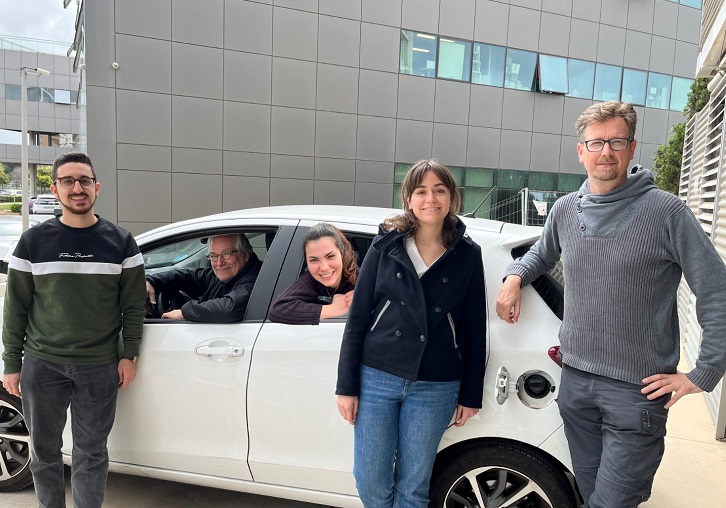Users
Social media
- More details here...
- Address
Parc Científic de la Universitat de València C/
Catedrático Agustín Escardino, 9
46980 Paterna (Valencia) Spain - Email:
iu.i2sysbio@uv.es - Phone:
(+34) 963544810
- Address
Links
Bacteria found in car fuel tanks serve to degrade hydrocarbons in contaminated areas

Investigation
Bacteria found in car fuel tanks serve to degrade hydrocarbons in contaminated areas

A research team from the Institute of Integrative Biology of Systems (I2SysBio) has discovered bacteria useful for the degradation of diesel in the fuel tank caps of diesel and gasoline vehicles. Carried out using Next Generation Sequencing (NGS) and culturomics, the study is published in the journal npj Biofilms and Microbiomes from the Nature group.
Fuel leaks and spills are one of the main causes of contamination of soil and groundwater. From spills in the ocean to leaks in pipelines or gas stations in highly urbanized areas, fuels can cause very serious ecological damage.
Bioremediation is one of the methods used to return an environment affected by pollution to its natural condition. It is a biotechnological process that takes advantage of the catabolic capacities of living beings, mostly microorganisms, and applies them to the degradation of pollutants.
Although the search for suitable microorganisms for the bioremediation of environments altered by hydrocarbons usually takes place in contaminated land or coastal areas, the research team at the Institute of Integrative Systems Biology (I2SysBio, UV-CSIC) has analyzed the microbiota that thrives under the fuel tank caps of both diesel and gasoline cars, and has found a biodiversity different from that of other environments contaminated by hydrocarbons. “They are microbial communities more similar to those we find on dry or arid surfaces, such as solar panels, than to those that appear, for example, in contaminated soils, which are the traditional places for searching for this type of bacteria,” comments Àngela Vidal Verdú, researcher at I2SysBio and first signatory of the article. “With this we expand the field of search for these microorganisms with enormous potential for bioremediation,” he adds.
The study published in the journal Biofilm and Microbiomes presents a complete characterization of the bacterial microbiome of this hitherto unexplored niche – the car tank lid – and identifies several types of strains, mainly proteobacteria – bacteria that include a wide variety of pathogens – with the capacity to biodegrade the diesel. And it establishes a collection of culturable strains, mainly of the genera Pseudomonas, Stenotrophomonas, Staphylococcus and Bacillus, some of which have shown a clear pattern of diesel degradation, suggesting their possible use for bioremediation. A possible new species of Isoptericola has also been characterized as an effective diesel degrader. “Our results demonstrate the interest in the study of ecological niches, which apparently are banal, but which under strong selective pressures (in this case presence of hydrocarbons in an environment poor in other nutrients) are a source of microorganisms of great industrial power,” emphasizes Manuel Porcar, coordinator of the work.
To carry out the work, the team has used different techniques, including Gas Chromatography coupled to Mass Spectrometry (GC/MS) and Next Generation Sequencing (NGS), a faster method for sequencing DNA and RNA that is revolutionizing genomics and molecular biology.
Reference:
The car tank lid bacteriome: a reservoir of bacteria with potential in bioremediation of fuel. Àngela Vidal-Verdú, Daniela Gómez-Martínez, Adriel Latorre-Pérez, Juli Peretó, Manuel Porcar. npj Biofilms and Microbiomes.
Link list:


